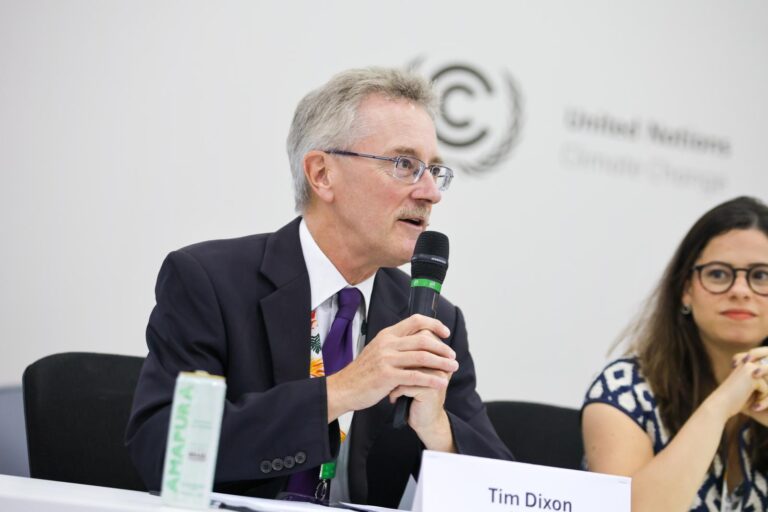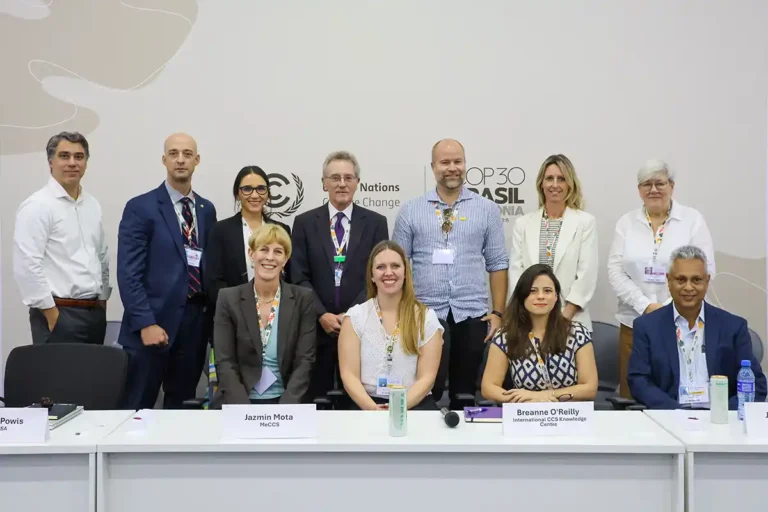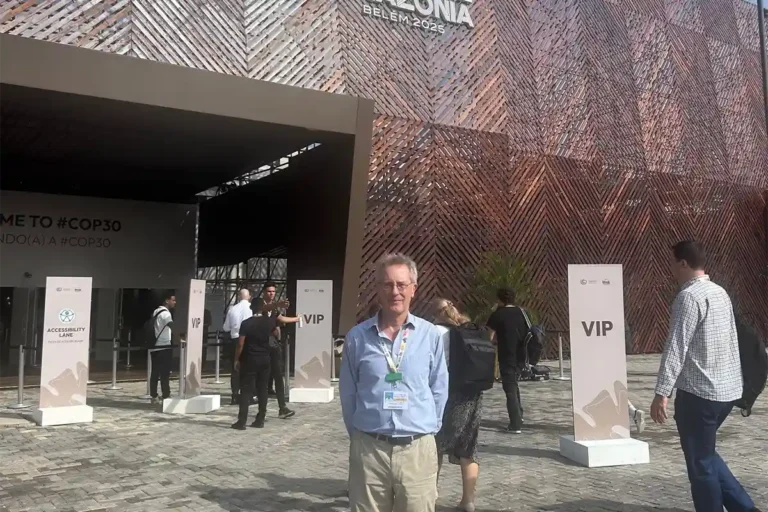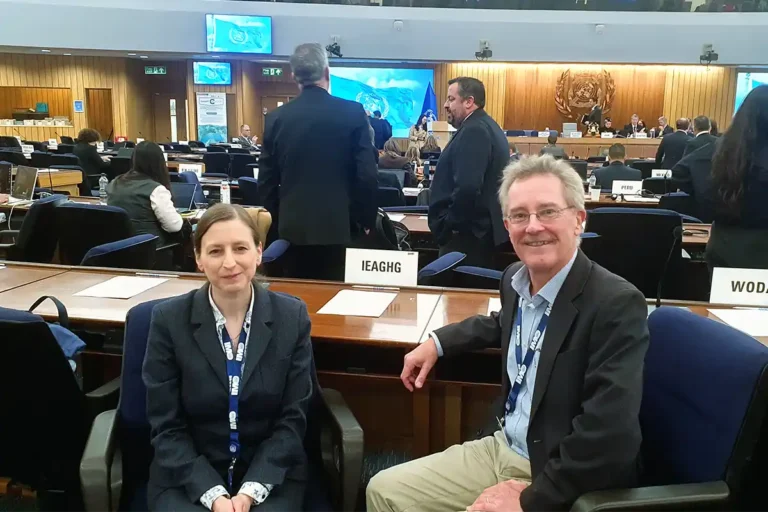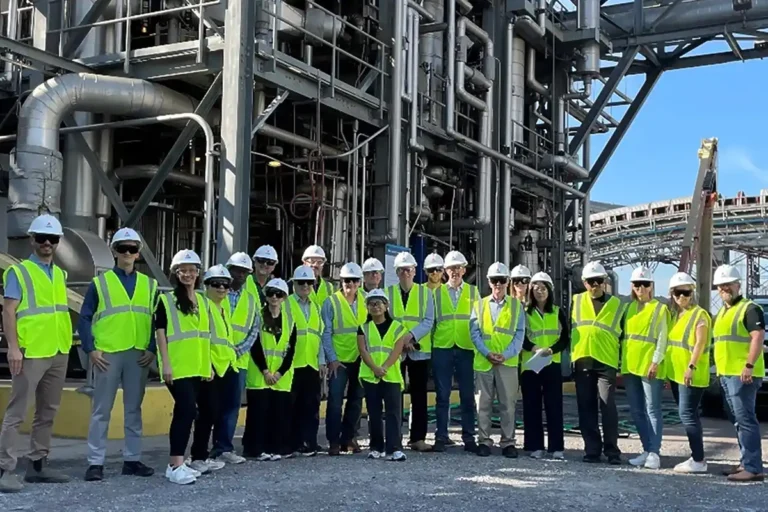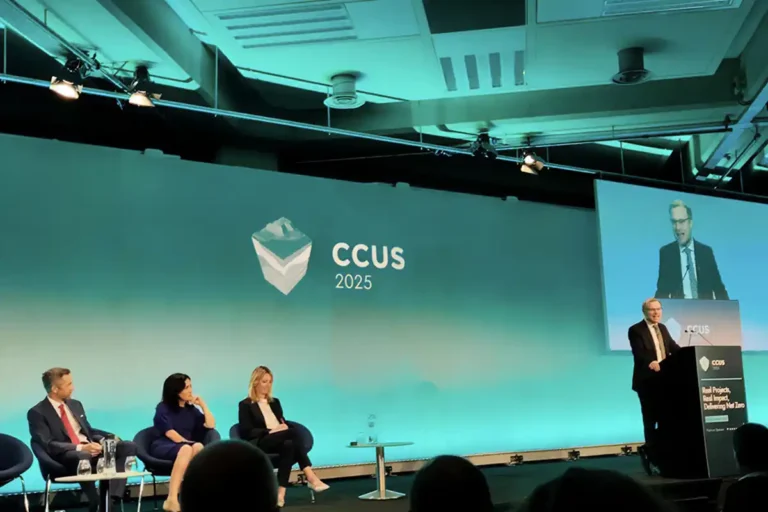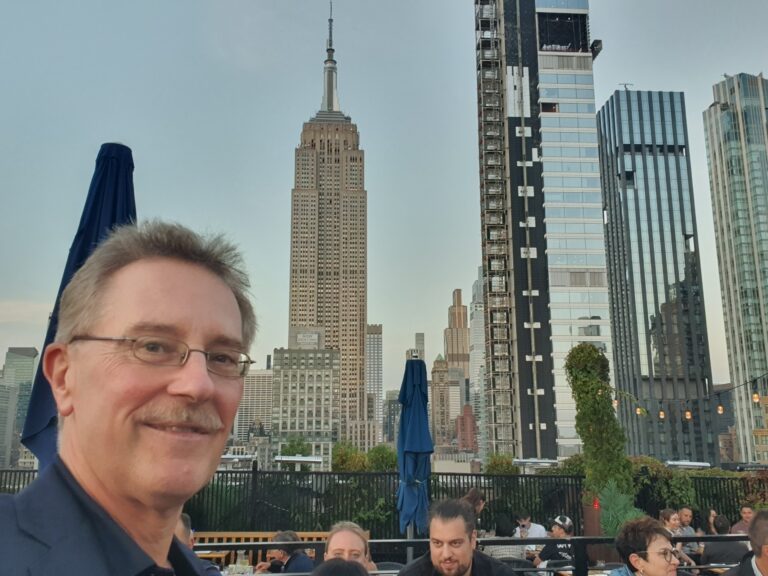
GHGT-16: Commercialising CCUS in the Middle East: Gulf region and Egyptian hub study cases
3 November 2022
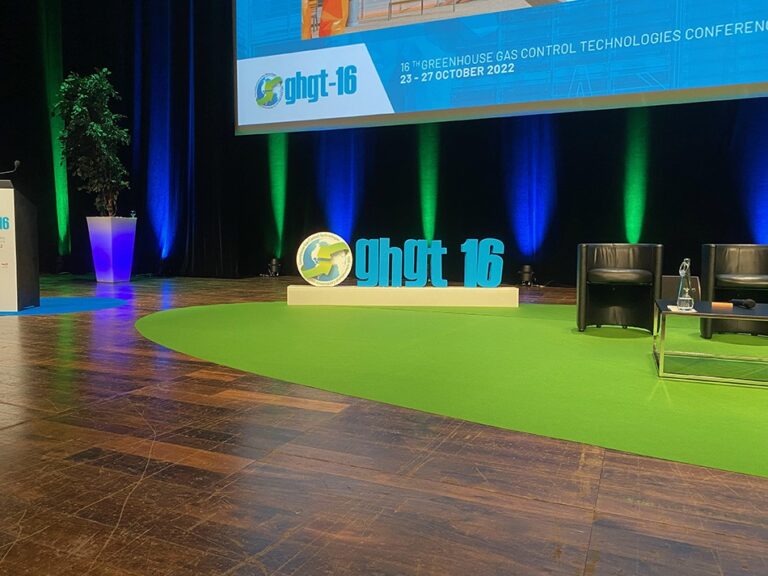

This panel discussion, Session 7C at this year’s GHGT conference, was held on Wednesday 26th October 2022 and saw moderator Rachael Moore from the IEA welcome three speakers in discussing the potential for CCUS in the Middle Eastern countries and Egypt. Iain MacDonald (Shell), Al Collins (Oxy) and Tidjani Niass (Saudi Aramco) provided insights on recent action from OGCI (the Oil and Gas Climate Initiative) and GCC (Gulf Cooperation Council) and relevant perspectives on the commercialisation of CCUS.
The OGCI is aiming for lower carbon via collective action and partnerships, with a strategy refresh undertaken in September 2021 that focusses on 3 main pillars: net zero operations and leverage influence, leading the oil and gas industry, and acting to help decarbonise society. Efforts are being made in the Initiative to kickstart the CCUS industry through hubs, and such efforts have recognised that hubs were mainly European and North American orientated in 2019, leading to the question of what the barriers or challenges were in other parts of the world. The OGCI Global Hub Search highlights 279 potential hub opportunities in 56 countries, matching clusters of CO2 sources with potential geologic storage locations. This modelling effort was a qualitative assessment considering the various factors which would influence hub location, including policy / regulatory support, carbon pricing, emission targets, existing CCUS commitments or activity, local value chain expertise, and political stability. The OGCI CO2 Storage Resource Catalogue is another important activity as the first independent assessment of global geologic storage evaluations, complementing other relevant activities in the Initiative including work on Article 6 and Carbon Storage Units, a review of policy mechanisms in 2018 and involvement in ISO Technical Committee 265 which focusses on CCS.
OGCI appreciate that to achieve their 3 pillars, collaboration is key – it’s bigger than just ‘oil and gas’. Knowledge sharing and working together is of utmost importance. The storage catalogue and hubs playbook take public information and presents it to stakeholders in a pre-competitive state, facilitating this collaboration and knowledge sharing using public references from companies such as IEAGHG, the IEA and GCCSI. There are some limitations of the work, for example the hub search results may not necessarily reflect all data because a lot of companies / countries don’t publish full reservoir data publicly, reiterating that more work is needed in such areas. OCGI are particularly interested in gaining more data from South East Asia, India, Egypt, Brazil and Mexico to assist with delivering roadmaps ad a narrative on the value of CCUS in those countries.
The Gulf Cooperation Council (GCC) is a group consisting of six countries (Saudi Arabia, UAE, Bahrain, Kuwait, Oman and Qatar) with huge energy abundance (both in oil and gas and the potential for solar and wind), but with scare water resources in a harsh environment and alongside carbon intensive industries. There are significant opportunities for CCUS in the GCC that would span both climate and socio-economic benefits, by capturing new markets and enabling a least cost net zero future in the region. Currently, there are four large-scale CCUS facilities in the GCC region capturing 4.2 mtpa. There are abundant sources of CO2 already concentrated in clusters in the region with approximately 170 Gt of storage potential in saline aquifers and oil and gas fields, although further work is needed to translate this potential into real opportunities. Saudi Arabia, UAE and Qatar are already advanced in their plans for CCUS hubs and the GCC is well positioned to become a leader in hydrogen, and DAC could also help to enable carbon removal and e-fuel production. Oxy too has big DAC ambitions of at least 70 MT by 2035 and all panellists agreed that CCS and DAC will be needed, with the IEA recent DAC report being a good source of cost data on the technology.
Egypt is another country of potential commercial growth in CCUS; their new climate strategy does mention CCS and four of the five main areas in this strategy demonstrate the value added of CCUS for Egypt, in: sustainable economic growth, enhancing governance, enhancing financial structures and enhancing R&D knowledge transfer. OGCI have carried out a case study on Egypt on the potential for a low-cost hub in the region, looking at storage resources and two possible hub models. Egypt has likely vast geological storage resources: in depleted fields with the ability to store an estimated <2.5 to ~111 MT CO2 and in saline aquifers likely 3 to ~488 GT CO2; this range is large because more work is needed to characterise the potential storage resources and more understanding is needed particularly on understanding saline aquifers in the region to meet CCS needs. OGCI considered two hub models in this study: a large-scale national hub and local industrial cluster hubs, with the integrated costs of the national hub identified at approximately US $85 /tCO2 and the individual integrated local hubs cost at approx. US $53-150 /tCO2, aligning with the aim of a significant ~100 MT CO2 reduction towards the country’s NDC and these hubs could support DACCS and a future low-carbon hydrogen economy. Currently, CCUS is not commercially viable in Egypt but in the longer term, Article 6 and the Green Climate Fund frameworks could be considered to assist with the adaptation of the technology in the country and international / domestic opportunities need to be investigated further, and once there is more understanding on the real storage resources, targets will be identified and investment more viable. This case study and hub modelling work will be published by the OGCI in late 2022 / early 2023.
It is surely a positive sign that Egypt has CCUS included in their NDC and other countries should followed suit if they haven’t already; inclusion in the NDCs will allow for more financing etc. Another issue of importance (worldwide, not just for Middle Eastern commercialisation opportunities) is that when contributing to negative emissions, it will be crucial for countries and companies to ensure there is no double counting; carbon credits in CCS are hugely important and more is needed on accounting methodologies and suggested best practices to ensure that issues such as double counting are properly mitigated and prevented.
In conclusion, the panellists emphasised that we should try and get away from the narrative that CCUS is a silver bullet and let countries know that it is an opportunity – it is not a cost, it is not a problem, and it can be done.
‘CCUS is an opportunity. We need to make it a reality’.
Other articles you might be interested in
Get the latest CCS news and insights
Get essential news and updates from the CCS sector and the IEAGHG by email.
Can’t find what you are looking for?
Whatever you would like to know, our dedicated team of experts is here to help you. Just drop us an email and we will get back to you as soon as we can.
Contact Us NowOther articles you might be interested in
Get the latest CCS news and insights
Get essential news and updates from the CCS sector and the IEAGHG by email.
Can't find what you are looking for?
Whatever you would like to know, our dedicated team of experts is here to help you. Just drop us an email and we will get back to you as soon as we can.
Contact Us Now

